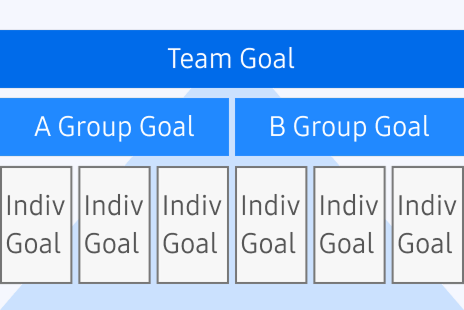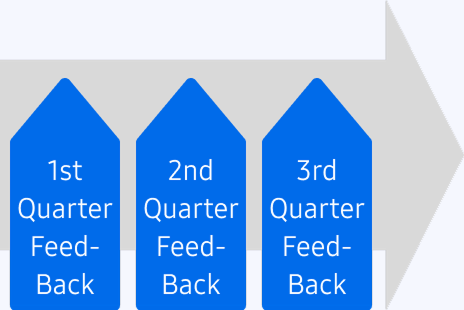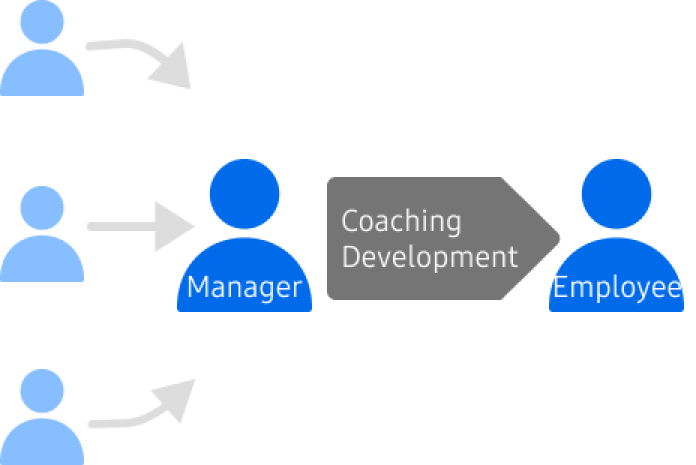Training Effectiveness and Performance
We strive to create a culture of self-learning and personal growth for all employees.
We host STaR (Samsung Talent Review) Week twice a year, allowing employees to explore and enroll in a wide range of training courses. In 2024, 63% of our employees participated. To continuously improve our capabilities, we also offer online learning resources that are accessible at any time.
Furthermore, we offer vocational courses in business strategies, AI, data science, factory management, and supply management to cultivate experts who blend theory with practice. Through diverse leadership programs, we aim to develop leaders capable of thriving in a constantly evolving business landscape.
All in-house training programs are systematically evaluated based on the Kirkpatrick Model, targeting those who have completed the courses. This multi-faceted analysis of training effectiveness helps us further refine our talent development strategy.
Key Program Performance
| Program | Participants | Duration | Satisfaction* | Job Relevance |
|---|---|---|---|---|
| Manager Coaching Program | 2,706 | 3 days | 98% | 99% |
| Leadership Development Program Following 360° Team Leader Assessment | 659 | 1 day | 96% | 93% |
| One Team Program | 1,071 | 3 days | 94% | 91% |
| Digital Marketing Simulation | 222 | 3 days | 96% | 95% |
| Cost & Financial Literacy | 80 | 2 days | 100% | 99% |
Number of In-house Certified Experts
| Field | Program | Certified Individuals in 2024 |
|---|---|---|
| SW | Associate Architect | 684 |
| Architect | 65 | |
| Best Reviewer | 839 | |
| Data Science Level 2 and above | 1,092 | |
| R&D | Mold Engineering Expert | 19 |
| Manufacturing & Production Technology |
Factory Management Expert | 3 |
| CS | Quality Management Expert | 19 |
| Purchasing | CPSM* | 43 |
Work Performance Management Processes
We ensure systematic performance management by focusing on the performance and skill development of employees based on each department's Ground rules. This includes annual goal setting by employees, coupled with regular feedback and annual performance reviews by managers.
We also provide HR policy training sessions for managers and employees to improve their comprehension of the performance management processes. In addition, we develop and distribute a performance management guidebook for managers to support the smooth implementation of HR policy.
Build a consensus on job responsibilities and performance evaluation guideline
Establish how managers will manage performance and provide Continuous Feedback

Based on Team Ground Rules,
Establish individual goals in alignment with team and sub-unit objectives

A two-way communication method that allows mutual feedback between managers and employees
through frequent one-on-one coaching

Provide a range of feedback from peers for managers to reference and actively utilize in the career development of employees
* Peer reviews provide insights related to colleagues’ professionalstrengths and areas for improvement or development.